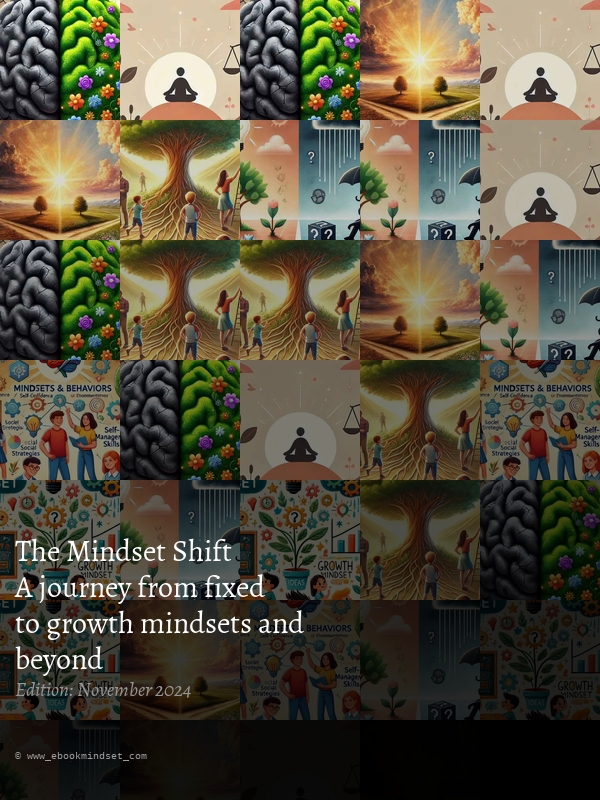Understanding the Buddhist Mindset: A Comprehensive Exploration
The Buddhist mindset represents a profound approach to perceiving the world and oneself, rooted in the teachings of Siddhartha Gautama, the Buddha. This mindset is characterized by principles such as mindfulness, compassion, non-attachment, and the understanding of suffering. This article explores the facets of the Buddhist mindset, its daily applications, and its contemporary relevance, providing a detailed examination of its core tenets and practical implications.
The Foundations of the Buddhist Mindset
1. The Nature of Suffering (Dukkha)
Buddhism centers on the recognition of dukkha, often translated as suffering or unsatisfactoriness. The Buddha taught that life inherently involves suffering, stemming from attachment and desire. This suffering isn't merely physical pain; it encompasses dissatisfaction, frustration, and the inherent impermanence of all things. Understanding dukkha is crucial for cultivating a Buddhist mindset, encouraging individuals to confront, rather than avoid, their suffering. This confrontation isn't about wallowing in negativity but about gaining a deeper awareness of its root causes, ultimately leading to greater self-awareness and liberation from its cycle. The Buddhist approach isn't about eliminating suffering entirely—an unrealistic expectation—but about understanding its nature and mitigating its power over our lives. By acknowledging the presence of dukkha, we begin to see it not as a personal failure, but as a universal human experience, thereby reducing the shame and isolation that often accompany suffering.
2. The Four Noble Truths
The Four Noble Truths underpin Buddhist philosophy and provide a framework for understanding the nature of suffering and the path to liberation:
- The Truth of Suffering (Dukkha): This truth acknowledges the pervasive nature of suffering in all its forms – physical pain, emotional distress, and the inherent unsatisfactoriness of life's impermanent nature. It's not simply about avoiding unpleasant experiences but about recognizing the reality of suffering as an integral part of the human condition.
- The Truth of the Cause of Suffering (Samudaya): This truth identifies the root causes of suffering as craving, attachment, and ignorance. These three factors create a cycle of dissatisfaction, clinging, and suffering. Craving manifests as a relentless desire for things to be different than they are, leading to disappointment and frustration. Attachment binds us to fleeting experiences and possessions, causing pain when they inevitably change or disappear. Ignorance prevents us from seeing the true nature of reality, leading us to make choices based on delusion rather than understanding.
- The Truth of the End of Suffering (Nirodha): This truth offers hope by asserting that suffering can cease. This cessation is not merely an absence of unpleasant experiences, but a state of liberation – Nirvana – characterized by peace, freedom, and enlightenment. It is achievable through the practice of the Eightfold Path.
- The Truth of the Path Leading to the End of Suffering (Magga): This truth outlines the Eightfold Path as the practical guide to achieving the cessation of suffering. It's not a rigid set of rules but a flexible framework for cultivating wisdom, ethical conduct, and mental discipline.
These truths encourage a mindset seeking understanding and transformation, not mere avoidance of discomfort. They invite us to engage with the realities of life, both pleasant and unpleasant, with a greater degree of awareness and acceptance.
The Eightfold Path: A Practical Guide
The Eightfold Path provides a practical framework for developing a Buddhist mindset. It's not a linear progression but rather interconnected aspects of ethical conduct, mental discipline, and wisdom that work together to cultivate inner peace and compassion. The path is comprised of eight interconnected principles:
- Right Understanding (Samma Ditthi): Cultivating a clear and accurate understanding of the Four Noble Truths and the nature of reality. This involves letting go of ingrained misconceptions and prejudices.
- Right Thought (Samma Sankappa): Developing wholesome intentions, free from greed, hatred, and delusion. This focuses on cultivating loving-kindness, compassion, and wisdom.
- Right Speech (Samma Vaca): Speaking truthfully, kindly, and constructively, avoiding gossip, harsh language, and idle chatter. This fosters harmonious communication and strengthens relationships.
- Right Action (Samma Kammanta): Acting ethically and morally, refraining from harmful actions such as killing, stealing, and lying. This involves aligning our actions with our values and promoting well-being.
- Right Livelihood (Samma Ajiva): Earning a living in a way that doesn't harm others or violate ethical principles. This involves considering the impact of our work on the world and choosing professions that align with our values.
- Right Effort (Samma Vayama): Cultivating positive mental states and abandoning negative ones. This involves consistent effort in developing mindfulness, compassion, and wisdom.
- Right Mindfulness (Samma Sati): Maintaining a state of present-moment awareness, paying attention to thoughts, feelings, and sensations without judgment. This cultivates a deep understanding of oneself and one's experiences.
- Right Concentration (Samma Samadhi): Developing mental concentration through meditation and other practices. This leads to deeper insight and a more peaceful state of mind.
Following this path fosters inner peace and compassion, transforming our relationship with ourselves and the world around us.
Mindfulness: The Heart of Buddhist Practice
Mindfulness is central to the Buddhist mindset. It's not just about meditation, but about cultivating a state of present-moment awareness in all aspects of life. It involves paying attention to thoughts, feelings, sensations, and the surrounding environment without judgment. This practice allows for a more conscious response to situations rather than reacting impulsively based on past conditioning or future anxieties. Instead of getting swept away by emotions or thoughts, mindfulness enables us to observe them with detached curiosity, creating space between stimulus and response. This space allows for more thoughtful and compassionate actions.
Benefits of Mindfulness
- Enhanced Emotional Regulation: Mindfulness helps us to identify and understand our emotions without being overwhelmed by them. This increased self-awareness leads to better emotional regulation and reduces reactivity.
- Reduced Stress and Anxiety: By focusing on the present moment, mindfulness reduces rumination on past events or worries about the future, contributing to stress and anxiety reduction.
- Improved Relationships: Mindfulness enhances empathy and compassion, allowing for more mindful communication and more fulfilling relationships. It enables us to truly listen to others, understanding their perspectives without judgment.
- Increased Self-Awareness: Mindfulness fosters a deeper understanding of our thoughts, emotions, and behaviors, facilitating personal growth and self-acceptance.
- Improved Focus and Concentration: Regular mindfulness practice improves attention span and concentration, benefiting both personal and professional life.
Compassion and Loving-Kindness (Metta)
Compassion (karuna) and loving-kindness (metta) are integral aspects of the Buddhist mindset. These qualities are not merely emotions, but cultivated practices that extend goodwill and empathy towards all beings, including ourselves. Compassion involves recognizing the suffering of others and acting to alleviate it, while loving-kindness fosters a feeling of warmth, kindness, and affection towards all beings.
Cultivating Compassion
- Recognizing Shared Suffering: Understanding that all beings experience suffering, connecting with this shared human experience fosters empathy and compassion.
- Responding with Kindness: Choosing to respond to the suffering of others with kindness, understanding, and patience, rather than judgment or anger.
- Engaging in Acts that Alleviate Suffering: Actively participating in activities that help reduce the suffering of others, from volunteering to simple acts of kindness.
- Practicing Compassionate Listening: Truly listening to understand another's perspective without interruption or judgment, showing genuine care and concern.
- Developing Empathy: Cultivating the ability to understand and share the feelings of others, stepping into their shoes to truly grasp their experience.
Loving-kindness meditation, a practice involving directing feelings of loving-kindness towards oneself and others, is a powerful tool for cultivating these qualities. The practice begins with self-compassion, recognizing our own inherent worthiness of love and kindness before extending these feelings to loved ones, neutral individuals, difficult individuals, and finally all beings.
Non-Attachment: Letting Go
Non-attachment doesn't mean apathy or indifference; rather, it's about cultivating a healthy relationship with possessions, experiences, and outcomes. It's about recognizing the impermanent nature of all things and understanding that clinging to them leads to suffering. This involves letting go of the need to control or possess, fostering freedom and contentment.
Strategies for Developing Non-Attachment
- Recognizing Impermanence (Anicca): Accepting that everything is constantly changing, nothing remains static. This understanding reduces the fear of loss and the desperation to hold onto fleeting experiences.
- Practicing Gratitude: Appreciating the present moment and what we have, rather than focusing on what we lack or want. Gratitude fosters contentment and reduces craving.
- Embracing Change: Viewing change not as a threat but as an inevitable and natural part of life, flowing with the current instead of resisting it.
- Developing Equanimity: Cultivating a balanced emotional response to both pleasant and unpleasant experiences. This involves accepting what is, without judgment or resistance.
- Focusing on the Process, Not the Outcome: Shifting our focus from the desired outcome to the present moment experience, enjoying the journey rather than being fixated on the destination.
The Role of Intention
Intention plays a crucial role in shaping our experiences. Buddhism emphasizes the importance of cultivating skillful intentions – those driven by compassion, wisdom, and generosity – while abandoning unskillful intentions rooted in greed, hatred, and delusion. Our intentions directly influence our actions, thoughts, and ultimately, our well-being. A compassionate intention leads to kind actions, strengthening positive relationships, while a hateful intention can fuel destructive behaviors, impacting both ourselves and others. By paying close attention to our intentions, we can cultivate a more ethical and fulfilling life.
Integrating Buddhism into Daily Life
A Buddhist mindset isn't confined to meditation cushions or temples; it integrates seamlessly into daily life. It's about applying the principles of mindfulness, compassion, and non-attachment to everyday situations and relationships.
Integrating Buddhist Principles into Daily Life
- Mindful Eating: Paying attention to the sensory experience of eating – the taste, texture, smell – without distractions. This fosters appreciation for food and reduces mindless overeating.
- Compassionate Communication: Practicing active listening, empathy, and mindful speech, fostering understanding and connection with others.
- Daily Reflection: Taking time each day to reflect on one's thoughts, feelings, and actions, identifying areas for personal growth and cultivating self-awareness.
- Mindful Movement: Paying attention to the physical sensations of movement during activities such as walking, yoga, or even simple chores.
- Engaging in Acts of Kindness: Performing random acts of kindness, extending compassion and goodwill to others.
- Practicing Gratitude: Regularly expressing gratitude for the good things in one's life, fostering contentment and positivity.
The Impact on Mental Health
Numerous studies suggest that cultivating a Buddhist mindset has significant positive effects on mental health. The practices and principles of Buddhism align with modern psychological approaches, promoting well-being and resilience.
Positive Impacts on Mental Health
- Reduction in Anxiety and Depression: Mindfulness practices have been shown to significantly reduce symptoms of anxiety and depression by regulating emotional responses and reducing rumination.
- Increased Resilience: The ability to cope with stress and adversity is enhanced through the cultivation of mindfulness, compassion, and non-attachment. These practices foster a sense of inner peace and stability, enabling individuals to navigate challenges with greater ease.
- Improved Emotional Intelligence: Buddhist practices enhance self-awareness and emotional regulation, contributing to improved emotional intelligence – the ability to understand and manage one's own emotions and the emotions of others.
- Enhanced Self-Compassion: Buddhist teachings encourage self-compassion, reducing self-criticism and fostering self-acceptance, leading to improved mental and emotional well-being.
Buddhism's emphasis on understanding emotions, accepting impermanence, and cultivating compassion aligns with modern psychological approaches to emotional intelligence and self-compassion, providing a framework for navigating life's complexities with greater awareness and equanimity.
Conclusion
The Buddhist mindset offers profound insights into navigating life's challenges while fostering inner peace and compassion. Embracing mindfulness, compassion, non-attachment, and intentional living cultivates a richer understanding of oneself and relationships, leading to greater happiness and fulfillment. By applying these principles to our daily lives, we can cultivate a more meaningful and resilient existence, transforming our experiences from suffering to liberation.




